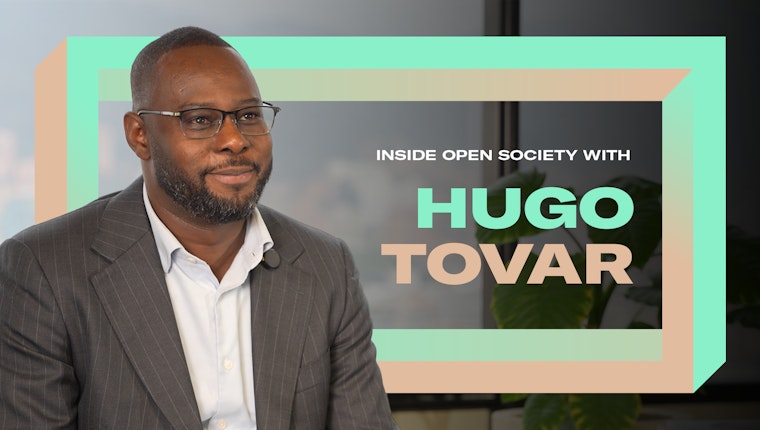People-Centered Approaches to Ensure Security and Rights for All
By Hugo Tovar

Safe and secure communities are cornerstones for open societies and strong democracies. When individuals face crime and violence, and fear takes hold, people may be tempted to give up their fundamental rights in exchange for a promise of safety.
Growing up in Buenaventura, Colombia, I have seen firsthand why it is crucial to reduce violence in communities and to prioritize safety and security as a way to protect democracy. We can address this by first tackling the root causes, such as economic opportunities, access to education, employment, and other basic needs.
At the Open Society Foundations, our transformative approach to building safe and secure communities focuses on putting people and their rights at the heart of the solutions to crime and violence. By engaging local communities, empowering civil society, and working with policymakers and other local actors, we can help create impactful solutions that build lasting change.

Our security and rights work focuses on supporting local communities, civil society actors, and governments in Colombia, Brazil, Mexico, Kenya, and Nigeria. Our goals include:
- Demonstrating the effectiveness of rights-respecting, people-centered approaches to tackling crime and violence by working with local communities, civil society, and lawmakers to co-create public safety models that integrate local experience in national policy reforms
- Enhancing innovations in communications, civic participation, and political mobilization to build widespread public support for people-centered public safety, leveraging the leadership and influence of policymakers and thought leaders willing to advocate publicly for these approaches
- Resourcing regional and transregional coalitions (policymakers, civil society organizations, thought leaders, affected communities, and donors) working collectively to champion people-centered alternatives rooted in the Global South as an alternative to increasingly popular hardline approaches
Crime and violence are complex problems, and the drivers of these issues vary depending on the region. However, Brazil, Colombia, Mexico, Kenya, and Nigeria have many similarities. They all face significant levels of insecurity, influenced by a combination of socioeconomic disparities, political instability, corruption, and the presence of powerful, organized crime syndicates. Issues such as poverty, inequality, limited access to education and health care, and unemployment have created conditions that allow crime and violence to increase.
Each of our focus countries presents a unique opportunity for change. All have emerged from similar histories—colonialism, dictatorships, armed conflicts, or organized crime—and face similar challenges: high levels of crime and violence, inequality and discrimination, debt, and the ravages of climate change. Yet they are also seeing the emergence of vibrant grassroots movements, often youth-led, poised to push for reforms to public safety policy.
When people don’t feel secure, they’re not able to exercise their democratic rights. When people feel unsafe, authoritarians may impose more draconian security measures like increased policing, mass surveillance, and incarceration. Marginalized people, including racial and ethnic groups, women, and the LGBTQI+ community, are often falsely targeted during public safety campaigns. Therefore, it is important to uplift these communities and center their voices in policy solutions to safety.
Research has shown the effectiveness of people-centered approaches to safety and security that embrace social, political, and economic dimensions. Our goal is to support local communities in developing alternatives to heavy-handed measures.
At this moment, we want to back ideas to combat crime and violence that are designed based on the particularities of local communities. We strive to empower these local initiatives from the regions and promote them at the global stage.
Hugo Tovar is a director of Programs at the Open Society Foundations.


